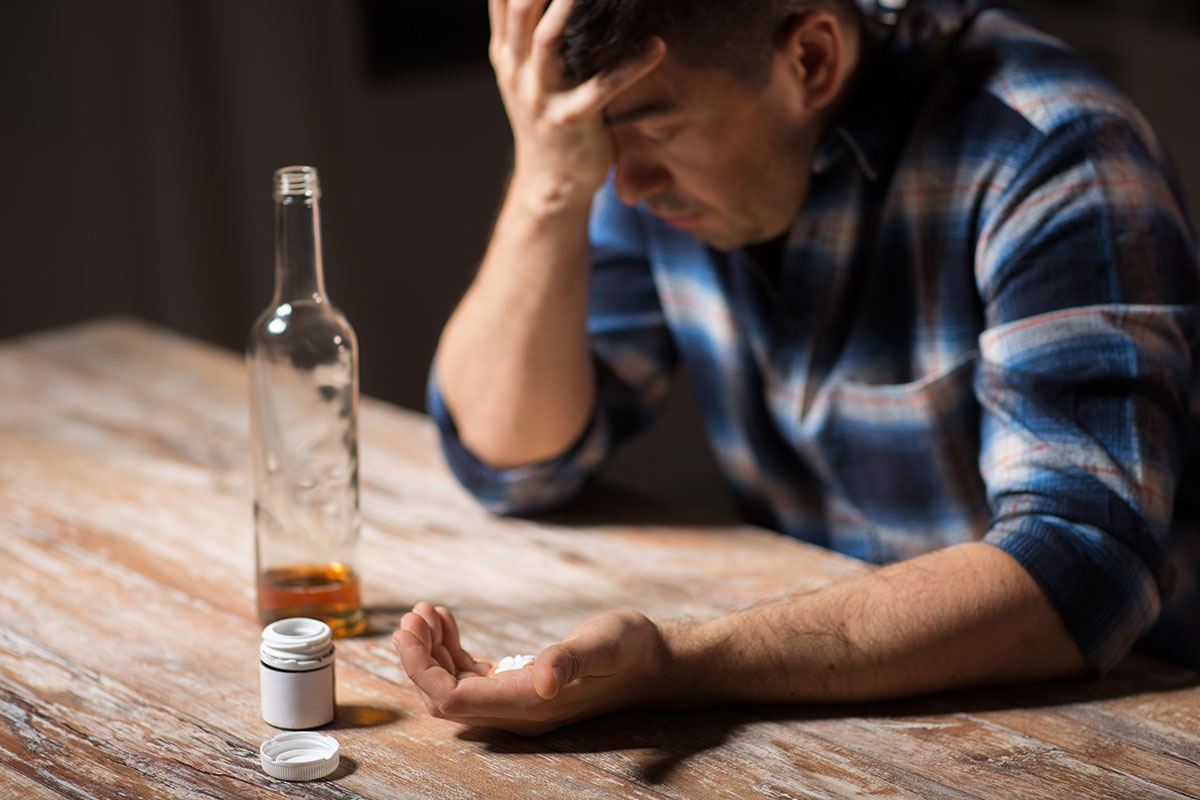
Addiction can be a touchy subject. It’s difficult to discuss, identify or address in almost any setting, but according to Inova, it’s time to act.
After a generous donation from the family behind NoVA-based HITT Constructing, Inova Health System has established the Act on Addiction campaign, a new initiative meant to educate the public about the reality of addiction and how those affected by it can rely on local resources for help.
We spoke with Michael R. Clark, M.D., MPH, MBA, chair of psychiatry at Inova Health System, about the program’s upcoming event on Saturday, Oct. 5, Inova Act on Addiction Summit: Bridging the Gap for Young Adults, and why this initiative has taken root in Northern Virginia.
The first-ever event will provide local resources, breakout sessions and keynote speakers that discuss addiction, prevention and more, with programming aimed at young adults. But, Clark says, those seeking more information or support should feel welcome to attend. Find out more about the event and the Act on Addiction initiative in our conversation, below.
For more health news, subscribe to our weekly newsletter.
What sparked this initiative to address addiction in NoVA?
This really originated with Joan and Russell Hitt, when they very generously donated $16 million to the Inova health system with the purpose of enhancing and expanding our existing substance abuse disorder treatment services. They had a particular interest in trying to engage family members of those affected and develop services more locally so that patients would not have to travel out of state for getting care for addiction, and also not have to lose contact with family members because of it. They also wanted to offer local support and other aspects to accommodate those seeking or obtaining treatment when they return to come back home into their local environment.
As we thought about how to do that and how to make the most with their generosity, we knew that September was a month with a strong focus on addiction, so we embarked on the campaign, Act on Addiction, to educate the public, to provide access to resources, and to make people aware of different treatment modalities for addiction. And that will all culminate on Saturday, Oct. 5, where we will bring speakers and make breakout sessions available so that family and friends, and people that are perhaps suffering from addiction, can come forward and get some information and support, and hopefully some encouragement that all of these are common problems, they’re treatable problems and our treatments do pretty well when people know how to access them and stay with them.
For the terms “addiction” and “substance abuse,” are you including all substances such as alcohol, nicotine, opioids, etc.?
It really is every abuse potential. Tobacco products are still used by 21% of the population, and nicotine is probably one of the highest addictive liability indexes of abused substances. It’s very difficult for people to stop smoking or using nicotine and it’s accompanied by just a huge array of chronic health conditions that ultimately compromise people’s longevity and quality of life. And then, of course, there is alcohol. Just like tobacco, it is legal and easily obtained, and many people are using and unfortunately kind of dependent on it and develop addictions.
Why is this initiative important now? Do you feel more pressure to address these issues as they have become more common and discussed in everyday life?
Well, I think that I personally have been concerned about these problems my entire career. I think that at the societal level and among other health care providers, we really have come through a period of 20 or 25 years where we have seen just an explosion in not only opioid prescribing, but opioid abuse disorders. There are consequences and one of those consequences is the rise in use of heroin and other illicit synthetic opioids, like fentanyl. And so, you know, we have more people dying from substance use disorders now than we’ve ever had. But we also need to recognize that our management of pain and our prescription of opioid medications really ran unchecked and without good habits.
We [as doctors] have really been part of the problem and now we have to figure out how we’re going to do better going forward. We want to raise awareness not only about opioids, nicotine and alcohol, but also the problems of heroin and others, which are instantly deadly in the wrong chances. But we also want to point out to people that substance abuse disorders are, in general, very common. Access to these substances is easier now than ever before. And we have younger and younger people using these substances than we’ve ever had. These are our children, these are our future. And if they develop a problem early in life, not only does it derail them, but it creates really decades of health care utilization and other burdens to society, as well.
What type of local resources will be available at Act on Addiction Summit: Bridging the Gap for Young Adults?
There will be a number of experts from the Inova system and around the area, making those resources more accessible and also just trying to educate people about what’s out there. We’ll be introducing people to the website, and we are hoping that it has an ongoing life of its own. And we will address these issues and help people who struggle with, “How do I raise the issue with somebody in the family who I care about?” or, just give them some ideas, tools and information with which they can reassure that person that this really is a treatable condition. This is one in which you should be optimistic and not be ashamed to seek help.
What do you hope this initiative accomplishes, and what should readers know about the reality of addiction in NoVA?
I hope that what it does is break down barriers to the conversations, so that we can begin talking more openly than we have about these disorders, about how prevalent they are and about ways in which we can prevent them from ever occurring. But also that at the conference, if we aren’t able to fully prevent it from happening, we can help people seek treatment, and help the community support treatment and think about ways in which to rally around their community members rather than stigmatize them or give up on them.
Act on Addiction Summit will be held at Fairfax High School on Oct. 5, from 12:45 to 4 p.m. // Fairfax High School: 3501 Rebel Rub, Fairfax; free




